New Faculty 2013-2014
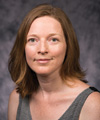
Jennifer Brisson
Assistant Professor of Biology
Jenn Brisson is assistant professor in the Department of Biology. Jenn received her bachelor’s degree from Kansas State University and her PhD from Washington University in St. Louis. She previously held postdoc positions at Princeton University, University of California–Davis, and University of Southern California and an assistant professor position at the University of Nebraska–Lincoln. Jenn’s research program investigates how environmental cues activate alternative gene expression programs during development to produce dramatically different alternative adult morphologies. Specifically, her laboratory uses genetic, genomic, and evolutionary approaches to understand how and why clonally reproducing small insects called aphids produces genetically identical winged or wingless morphs as a response to different environmental conditions.
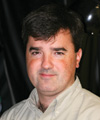
Edward Brown
Associate Professor of Biomedical Engineering
Edward Brown is an associate professor in the Department of Biomedical Engineering. His research explores the roles of the extracellular matrix in tumor metastasis and the development of novel optical techniques to study those processes. He earned his PhD in physics from Cornell University and was a postdoctoral fellow in the department of Radiation Oncology at Massachusetts General Hospital. He was a Pew Scholar in the Biomedical Sciences, a DoD BCRP “Era of Hope” Scholar, and currently holds an NIH Director’s New Innovator Award.
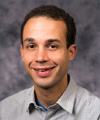
Mark Buckley
Assistant Professor of Biomedical Engineering
Mark Buckley graduated from Haverford College in 2001 with a BS in physics and spent the following year teaching at the Huangshi No. 2 Middle School in Hubei Province, China. Upon his return to the United States, he embarked on a one-year fellowship at the National Cancer Institute’s Division of Cancer Epidemiology and Genetics studying radiation dosimetry. Buckley received his PhD in physics from Cornell University in 2010 and worked as a postdoctoral fellow in the McKay Orthopaedic Research Laboratory at the University of Pennsylvania from 2010 to 2012. He joined the faculty of the Department of Biomedical Engineering at the University of Rochester in January 2013.
Buckley is a recipient of Haverford College’s Louis Green Prize in Physics (2001) and is a former NSF Integrative Graduate Education and Research Traineeship (IGERT) scholar (2008–2009). He has coauthored 20 publications on diverse topics ranging from three-dimensional tracking of swimming bacteria to the mechanical properties of cartilage under shear loading. Buckley is currently interested in “viscoelastic” soft biological tissues like cartilage and tendon that exhibit both fluid- and solid-like mechanical properties. His research emphasizes finding ways to control and exploit these complex properties to diagnose damage and disease, guide rehabilitation protocols, and evaluate treatment and repair strategies in these tissues.
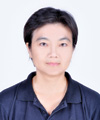
Shin-yi Chao
Associate Professor of Religion
Shin-yi Chao joins the faculty as associate professor of religion. She is currently conducting research in China with the support of an American Research in the Humanities in China grant funded by the NEH, but she will be in Rochester by the end of this semester. Professor Chao holds a PhD in Asian studies from the University of British Columbia and MA degrees from UCLA and National Tsing Hua University (Taiwan). She was until recently associate professor of religion at Rutgers University (Camden), having taught previously at Tajen Institute of Technology and Washington University.
Professor Chao’s first book is Daoist Ritual, State Religion, and Popular Practices: Zhenwu Worship from Song to Ming (960–1644), (London and New York: Routledge, 2011). It examines the warrior god Zhenwu, the only national deity in China, throughout a long historical period and across a wide geographical area. Professor Chao combines a study of texts with an anthropological interest in the interaction of the various participants, including religious professionals (priests), religious practitioners, and political authorities. She thus combines intellectual, social, and cultural history. Chao’s current research investigates the contemporary religious revival in China by studying the restoration of a specific mountain temple dedicated to a fourth-century female monastic. This project combines two of Chao’s interests, women monastics and ethnographic fieldwork, and continues her earlier work of illuminating the social factors that shape the development of a religion.
Chao will teach courses on Chinese religions, East Asian religions more generally, and new religious movements across the globe.
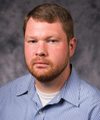
Thomas Devaney
Assistant Professor of History
Tom Devaney received his PhD in history from Brown University in 2011. He also holds an MA in social sciences from the University of Chicago (2004), an MA in teaching from Boston College (2000) and a BA in history from Trinity College (1998). Tom comes to us from Indiana University– South Bend, where he was a tenure-track assistant professor of history for academic year 2012–13. He previously served as visiting professor of history at University of Puget Sound. Prior to entering graduate school, he taught in Massachusetts high schools for several years.
Tom has recently received a book contract from University of Pennsylvania Press for his monograph, No One Shall Wear Mourning: Urban Spectacle and the End of the Spanish Frontier, which is based on his dissertation. This work examines relations between Christians, Muslims, and Jews on the frontier between Catholic Castile and Islamic Granada in the 15th century. Specifically, Tom shows how the organizers of spectacles and public performances in Christian towns strove to resolve the tension between the ideology of holy war, which demanded the eradication of Islam and Judaism, with the reality of living with and trading with Muslims and Jews. Tom brings to the department expertise in early modern and medieval Europe, the history of frontiers, Islam, and more. He has published articles in Speculum, Viator, and Medieval Encounters and is the recipient of numerous honors and awards, including a Mellon Postdoctoral Fellowship.
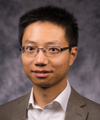
Zhiyao Duan
Assistant Professor of Electrical and Computer Engineering
Zhiyao Duan received his BS in automation and MS in control science and engineering from Tsinghua University, China, in 2004 and 2008, respectively, and received his PhD in computer science from Northwestern University in 2013. He joined the faculty of the Department of Electrical and Computer Engineering as assistant professor in 2013. Zhiyao’s research interest is in the broad area of computer audition, i.e., designing computational systems that are capable of analyzing and processing sounds, including music, speech, and environmental sounds. This is an emerging and interdisciplinary area that involves signal processing, machine learning, acoustics, and music theory. Specific problems that he has been working on include automatic music transcription, multi-pitch analysis, music audio-score alignment, sound source separation, and speech enhancement.
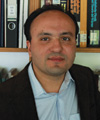
Ignacio Franco
Assistant Professor of Chemistry
Ignacio Franco has joined the chemistry faculty at the University of Rochester. Ignacio received his BSc in chemistry from the National University of Colombia in 2001. After completing the diploma program in condensed matter physics at the Abdus Salam International Centre for Theoretical Physics, Trieste, in 2002, he moved to the University of Toronto to pursue a PhD in theoretical chemical physics under the guidance of Paul Brumer. Ignacio’s PhD work was in the field of quantum control and focused on investigating the use of lasers to induce ultrafast controllable currents along nanoscale junctions. In 2008 he joined Northwestern University as a postdoctoral fellow in the groups of Mark A. Ratner and George C. Schatz, where he worked on the theory and simulation of single-molecule pulling experiments. He then moved to Berlin as group leader and Humboldt Research Fellow in the theory department of the Fritz Haber Institute in 2011, where he investigated electric decoherence processes in molecules. Research in the Franco lab focuses on theory and computation as applied to dynamical processes occurring at the nanoscale. The lab uses and develops theoretical techniques that allow the identification of new methods to exert control over the behavior of matter by means of external stimuli, a topic that the group likes to refer to as “Molecules under Stress.” Problems of current interest include (1) laser control of electronic properties and dynamics, (2) electronic decoherence in molecules, (3) theory and simulation of single-molecule pulling processes, and (4) novel spectroscopies and control in single-molecule junctions.
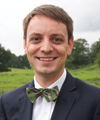
Robin Harding
Assistant Professor of Political Science
Robin Harding received his PhD in political science from New York University in 2012, having previously studied at the University of Sheffield and the University of Oxford. Before joining the University of Rochester, he spent the 2012–13 academic year as a Prize Postdoctoral Research Fellow at Nuffield College, the University of Oxford. His doctoral dissertation focused on the impact of electoral competition on the provision of public goods and services in sub-Saharan Africa, and he is currently turning the dissertation into a book. He is also involved in research projects that consider the political economy of food security, the value of electoral choice in democracy, and the determinants of maritime piracy in Somalia. Robin’s work has been published or accepted for publication in Economics and Philosophy, the Journal of African Economies, and the Journal of Politics, and he has written background research papers for the United Nations Development Programme’s Human Development Reports. His teaching interests include contemporary African politics, elections in developing countries, and the political economy of development.
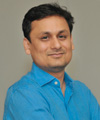
Ehsan Hoque
Assistant Professor of Computer Science
Ehsan Hoque just finished his PhD at the Media Lab of Massachusetts Institute of Technology (MIT). As part of his PhD thesis, Ehsan developed a system that allows people to practice social interactions using a laptop. The interaction has been designed so that participants can control the pace of the interaction, be in the driving seat of the session, and practice as many times as they wish. This is particularly useful for people diagnosed with social difficulties and desire help to improve their interaction skills (e.g., poor eye contact and inflection of voice) but fear social stigma. For more details, see https://www.media.mit.edu/video/view/mehoque-2013-07-15. Ehsan’s work on nonverbal behavior understanding and recognition has been published in IEEE/ACM journals, received best paper nominations at the top artificial intelligence (AI) conferences, and appeared in popular press, including Time Magazine, Wall Street Journal, MIT Technology Review, and PBS, among many. Some of his research prototypes (e.g., Disney animatronics, MIT Mood Meter) have been deployed in Disney Parks and at several public places of MIT, allowing open interaction with thousands of people and data collection for an extended period. Ehsan intends to continue his research of inventing the future of emotion technology and enabling new interaction possibilities in the areas of health and assistive technologies. He’s excited about doing research that makes a real-world impact and improves quality of life.
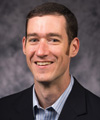
Doug Kelley
Assistant Professor of Mechanical Engineering
Professor Doug Kelley joined the Department of Mechanical Engineering as a tenure-track assistant professor on July 1, 2013. Kelley, who has a BS in electrical engineering from Virginia Tech, received his PhD in physics from the University of Maryland, where he worked on rotating hydromagnetic experiments to model planetary cores. He brings a breadth of postdoctoral experience. He comes to Rochester from MIT, where he did a year of postdoctoral work under Donald R. Sadoway, focusing on the measurement, simulation, and control of mixing in liquid metal batteries. He spent three years before that as a postdoctoral associate with Nicholas T. Ouellette at Yale University, where he studied the relation of Lagrangian Coherent Structures to spectral energy transport, identifying the separate stretching and folding processes of fluid mixing. Professor Kelley’s research is in the experimental and computational dynamics of fluid flows as non-equilibrium, dynamical systems. This approach can be applied to energy technologies like liquid metal batteries or natural phenomena like the ecological dynamics of oceanic phytoplankton, affecting Earth’s climate. Professor Kelley has a strong publication record, having published in journals including Nature Physics, Physics of Fluids, Chaos, and Physical Review Letters. He brings extensive teaching experience as a graduate student and postdoc and has involved many undergraduate students in several research projects under his supervision.
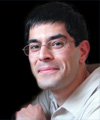
Rajeev Raizada
Assistant Professor of Brain and Cognitive Sciences
Rajeev Raizada is an assistant professor in the Department of Brain and Cognitive Sciences. He received his PhD from Boston University in computational neuroscience. His research asks how neural representations are structured in the brain and how they underlie people’s behavior. To explore these issues, he uses functional magnetic resonance imaging (fMRI), behavioral testing, and computational modeling. Some of the questions that he is working to address include: How can we use fMRI to provide us with additional diagnostic or predictive information about people’s mental states over and above what we can measure from behavior? How can the similarity structure of neural representations help us to understand how people are able to solve cognitive problems? How is semantic information represented in the brain, for example, the meanings of words and sentences? What type of structure is shared across different people’s neural representations, and what kinds of individual differences are there? More information about his research and downloadable publications can be found at raizadalab.org.
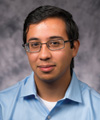
Pablo Sierra
Assistant Professor of History
Pablo Sierra comes to us from University of California–Los Angeles, where he received his PhD in Latin American history this May, and his MA in 2008. He holds a BA from University of Pennsylvania (2006). In addition to teaching UCLA undergraduates during graduate school, he has taught at Johns Hopkins University’s Center for Talented Youth and the Philadelphia Freedom Schools for inner-city youth. A native of Mexico and the United States, Pablo has also lived in Senegal.
Pablo’s dissertation, “Urban Slavery in Colonial Puebla de los Ángeles, 1536–1708,” examines African slavery in the 16th and 17th centuries in the city of Puebla, Mexico, a center of textile manufacture. Black slavery was an important part of Mexican history—perhaps 200,000 enslaved Africans were brought to Mexico by slave traders over the centuries—yet the topic is understudied and little known. Among other path-breaking arguments, Pablo contends that intermarriage between Native American women and enslaved men of African descent led to the decline of black slavery in Mexico.
Pablo will contribute expertise in the history of the African Diaspora and of Latin America to the history department.
Pablo has published articles in an essay collection, City Indians in Spain’s American Empire and the Journal of Pan-African Studies. He is the recipient of a Fulbright-Hays Doctoral Dissertation Abroad Fellowship and two Foreign Language and Area Studies Fellowships for the study of Portuguese.
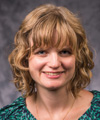
Lisa Starr
Assistant Professor of Clinical and Social Sciences in Psychology
Lisa Starr joins the faculty of the Department of Clinical and Social Sciences in Psychology. She was most recently at the University of California–Los Angeles, where she was a postdoctoral scholar in psychology. Lisa received her BA from the University of Virginia and her PhD in clinical psychology from SUNY Stony Brook University. She also completed her predoctoral clinical internship at the University of Illinois at Chicago Medical Center. Her research focuses on causes and consequences of depression and anxiety, especially how they affect and are affected by interpersonal relationships and how genetic vulnerability interplays with environmental stressors. She has a particular interest in applying daily diary methods to track microprocesses in psychopathology. In addition to her research, Lisa will teach undergraduate and graduate courses and mentor PhD students in the clinical psychology training program.
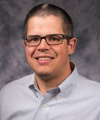
Wyatt Tenhaeff
Assistant Professor of Chemical Engineering
Wyatt Tenhaeff received a BS in chemical engineering from Oregon State University in 2004 and a PhD in chemical engineering from Massachusetts Institute of Technology in 2009. His PhD thesis research emphasized the development of polymer thin film coatings by chemical vapor deposition techniques. After receiving his PhD, Wyatt won the Oak Ridge National Laboratory (ORNL) Weinberg Fellowship in 2009. At ORNL, he worked on the development of electrolytes for solid state lithium batteries as well as several other materials problems in lithium ion batteries. He was a staff scientist at ORNL for three and a half years before coming to Rochester. Wyatt joined the Department of Chemical Engineering in July 2013. His current research focus is the development of novel solid electrolytes for a wide range of electrochemical energy storage systems. Solid state batteries and hybrid flow batteries for grid-level energy storage are examples of the practical applications of these materials. His work will also focus on the development of engineered surfaces/interfaces to simultaneously prolong the service life and increase the accessible energy density of existing lithium ion battery electrode materials.
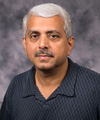
Dinesh Thakur
Professor of Mathematics
Dinesh S. Thakur received his PhD in mathematics from Harvard in 1987. His main work has been in number theory, where he has been instrumental in developing various aspects of function field arithmetic and arithmetic geometry. Dinesh has broad interests, both within mathematics and in other fields of science, and in his research has put this knowledge to work making use of concepts from a wide range of fields, such as solitons and automata. He comes to Rochester from the University of Arizona, where he was a faculty member for 20 years. There he was a founding member of—and for 15 years a PI or co-PI and participant in—the NSFfunded Southwest Center for Arithmetic Geometry and the Arizona Winter School, perhaps the premier training ground for young number theorists in North America.
In addition to his time at Arizona, Dinesh spent three and a half years at the Institute for Advanced Study at Princeton, three years at the Tata Institute of Fundamental Research in Bombay, and a year each at the Universities of Minnesota and Michigan. His graduate textbook, Function Field Arithmetic, is considered the standard reference in the field. Editorial boards on which Dinesh has served include the Journal of Number Theory, International Journal of Number Theory, and P-adic Numbers, Ultrametric Analysis and Applications.
The department is very pleased that Dinesh is joining our algebra and number theory group.
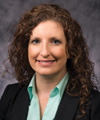
Laura Wray-Lake
Assistant Professor of Clinical and Social Sciences in Psychology
Laura Wray-Lake joins the Department of Clinical and Social Sciences in Psychology after serving as assistant professor at Claremont Graduate University for three years. Laura received a BA in psychology from Wake Forest University in 2002, an MA in psychology from Bucknell University in 2004, and her PhD in human development and family studies from the Pennsylvania State University in 2010. As a lifespan developmental scientist, Laura’s expertise lies in adolescence and the transition to adulthood. Her program of work focuses on the development of social responsibility and civic engagement. Key themes in Laura’s research include an examination of the everyday contexts that support positive youth development with an emphasis on the role of families and schools and investigation of the role of inequality and marginalization in the development of actively engaged citizens.
